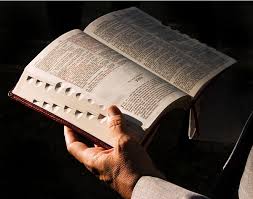
This article by John Nelson Darby was published in JND’s Collected Writings Miscellaneous 5.
Man’s pretensions and energy manifest themselves strongly, But to learn to be still in a clay of grace, and know that God is God, is completely above the education of the flesh.
The spirit of the age affects many Christians, who labour to restore old things for the service of God. They should be broken before Him with the sense of their downfall.
To confess openly that which we are in the presence of that which God is, is always the way to peace and blessing. Even when only two or three are together before God, there will be no disappointments nor deluded hopes. God’s word for the remnant is, “Sanctify the Lord God in your hearts.” (1 Peter 3:15) He is the only centre of gathering.
The Holy Spirit does not gather saints around mere views, however true they may be. It is not q question of what the church on the earth is, or has been, or may yet be; He always gathers saints around that blessed Person, who is the same yesterday, today, and forever. “Where two or three are gathered together in My name, there am I in the midst of them.” Matt. 18:20.
We need to be watchful against boasting, as people do in these days. We need to be still, in the presence of God. There is much independence and self-will almost everywhere.
If anyone speaks of separation from evil, without being humiliated, let him take care lest his position becomes simply sectarian, and produces doctrinal heresy. Sectarianism is the most natural weed of the human heart. (Sectarianism is getting an interest in a little circle round ourselves.) Nearness to Christ would keep us from that.
Now I know, at the present time, of no service which is worthy of Him, if it is not done in humiliation. This is not the time to speak of a place for ourselves. If the church of God, so dear to Christ, is dishonoured in this world; if it is scattered, ignorant, afflicted, the person who has the mind of Christ will always take the lowest place. True service of love will seek to give according to the need, and because of the need, he will never think of slighting the objects of the Master’s love because of their necessity.
Men taught of God, for His service, go forth from a place of strength, where they have learned their own weakness and their own nothingness. They find that Jesus is everything in the presence of God, and Jesus is everything for them in all things, and everywhere. Such men, in the hands of the Holy Spirit, are real helps for the children of God, and they will not contend for a place, or a distinction, or for authority, among the scattered flock. A man in communion with God about the church will show his willingness to be nothing in himself, and he rejoice in his heart to spend and to be spent. He is faithful in the path of separation, in sorrow, and in the conflicts he is obliged to pass through.
When persons think of the church, they would rather think of the church in power. We can learn from the conduct of Zerubbabel, recounted in the book of Ezra. Also, despite the position Solomon had occupied, as heir, in days of his prosperity and glory, he did not speak of either his birth or his rights.
If we speak of our testimony upon the earth, it will soon be evident that totally in weakness. Like the seed by the wayside, the testimony will likewise ends in shame.
Neither the anger, prudence, or pretensions of man can do anything, in the state of confusion in which the church is now. I freely own that I have no hope in the efforts which many make to assure themselves an ecclesiastical position. When the house is ruined in its foundations by an earthquake, it matters little how one tries to make it an agreeable dwelling place. We had better remain where we first discovered of the ruin of things by man’s action – with our faces in the dust. S uch is the place which belongs to us by right, After all, it is the place of blessing.
I have read of a time when several were gathered together in such sorrow of heart, that for a long time they could not utter a single word; but the floor of the meeting room was wet with their tears. If the Lord would grant us such meetings again, it would be our wisdom to frequent these houses of tears. “They that sow in tears, shall reap in joy.” Psa. 126:5.
This is not just true for the earthly remnant; it is also written for us. I would willingly take a long journey to join these afflicted ones; but I would not go a step to to receive power from men, however excellent, to overturn the present and reconstruct the future.
J.N.D.
Lightly edited by Sosthenes – May 2014
I am indebted to our brother Jeff in Illinois for bringing this article to my attention. S.

